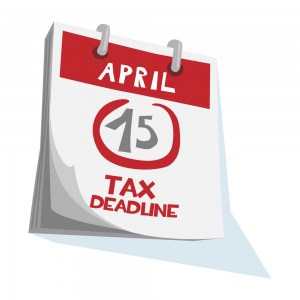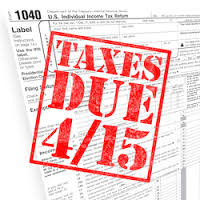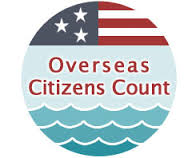|
You are not alone if you do not file your tax return on or before April 15th. Although this is the official deadline for the filing of personal tax returns, each year more and more people apply for an automatic six-month tax extension. The number of taxpayers requesting an extension increased from 11 million in 2011 to over 13 million in 2013, an increase of almost 20% over the two-year period! Another interesting fact is that, in tax year 2014, 25% of those individuals who had requested and extension were still working on their tax returns in September, just one month before the October 15th extension deadline. Although procrastination is one reason for requesting a tax extension, there are other factors that contribute to tax returns not getting filed by the April 15th filing deadline. Several of those are highlighted below:
Although filing a request for a tax extension does not relieve a taxpayer of the obligation to pay any taxes owed, it is definitely a better option than filing an incorrect or incomplete return. As long as the request for a tax extension is either e-filed or postmarked before the end of the day on April 15th, it will allow the requesting taxpayer to avoid the late filing penalty which usually amounts to 5% of any unpaid tax balance for any month or partial month that the return is late. In addition, it will give the requesting individual six full months to submit a complete and correct tax return. If you have tax questions or a tax debt you are unable to pay, our tax settlement professionals are happy to discuss your tax resolution options free of charge. For more information about our services, visit us today at www.professionaltaxresolution.com or call us at 877.889.6527. With over 16 years in the business of resolving tax debt, we have a thorough understanding of tax law together with the experience to know which settlement option will be the best fit for your specific set of circumstances. |
Category Archives: Preparation
Why You Should File Your Taxes
Why You Should File Your Taxes by April 15
April 15th is an important filing deadline for individual taxpayers. If the Internal Revenue Service does not receive either a completed tax return or an application for a six-month tax extension by this date, they will automatically assess a failure-to-file penalty. In addition, they will begin to assess a failure-to-pay penalty on any tax amounts owed. Although the failure-to-file penalty can be diverted by applying for a six month tax extension, late payment and interest assessments will automatically begin to accrue as of the April 15th tax deadline regardless of whether a tax extension has been filed.
Because the penalties and interest described above are compounded over time, the financial consequences of failing to file tax returns and failing to pay tax amounts owed can be significant. The failure-to-file penalty is assessed at a rate of 5% of the back tax balance for each month or partial month that a return is not filed up to a maximum of 25% of the outstanding tax liability shown on the return. A minimum penalty of either $100 or the entire amount of the back tax balance is assessed for any return that is not filed within 60 days of the filing deadline. In addition, a failure-to-pay penalty is assessed at a rate of 0.5% per month for each month or partial month following the filing deadline where a back tax balance remains unpaid. This rate is reduced it 0.25% if a taxpayer is making payments according to the terms of an official installment agreement and is excused altogether if a tax extension was filed and 90% of the back tax balance was paid on or before the original filing deadline. The failure-to-pay penalty is assessed for a maximum or 50 months, thus capping out at maximum of 25% of the original tax liability.
The lesson to be learned from all of this is that the filing of tax returns and the paying tax bills should be taken seriously. As is pointed out above, the financial consequences of not doing so can be significant. The failure-to-file penalty can be avoided by simply filing a tax return by the filing deadline even in the case where funds are not available to pay the tax amounts due. Outside of this, a taxpayer should avoid the compounding of penalties and interest by being proactive in coming up with a plan to pay any outstanding tax liability. To this end, the IRS is willing to work with delinquent taxpayers to come up with payment plans they can afford. Once a payment amount is determined based on the size of the back tax balance and the taxpayer’s financial situation, the taxpayer simply pays this monthly installment amount until the back tax balance is paid off. This is a far better solution than ignoring a tax bill and then having to pay the back taxes plus an additional 25% of the original tax amount owed.
If you have tax questions or a tax debt you are unable to pay, our tax settlement professionals are happy to discuss your tax resolution options free of charge. For more information about our services, visit us today at www.professionaltaxresolution.com or call us at 877.889.6527. With over 16 years in the business of resolving tax debt, we have a thorough understanding of tax law together with the experience to know which settlement option will be the best fit for your specific set of circumstances.
Choose Your Tax Preparer Wisely
Choose Your Tax Preparer Wisely
Choose Your Tax Preparer Wisely: With over half of all taxpayers enlisting the services of a tax preparer, tax preparation has become a major industry. This being the case, the selection of a reputable tax preparer is a task at hand for many at this time of year. Although the services of a tax preparer can be an invaluable asset in saving tax dollars as well as meeting tax deadlines and compliance requirements, choosing one that is both competent and ethical and is often a difficult process.
When choosing a tax preparer, it is important to select a firm or an individual that has an established licensing history and a verifiable physical address. The absence of either of these could mean that the firm may not be around to answer questions and follow up if there are problems once the return has been filed. In terms of licensing it is important to use a preparer with a Preparer Tax Identification Number (PTIN). Since Certified Public Accountants and Enrolled Agents are the only preparers who can represent their clients before the IRS in all tax matters, it may be advisable to seek a preparer with one of these additional certifications if the return is difficult or presents unusual problems. It is also prudent to check out available reviews and ratings of any tax preparer under consideration in addition to making sure there are no registered complaints against that firm or individual.
In light of the points discussed in the previous paragraph, the following is a list of some things to avoid when selecting a tax preparer:
Avoid any tax preparer who does not have a valid 2015 PTIN. Preparer Tax Identification Numbers are renewable each year so any reputable tax preparer should have a current PTIN number.
Avoid tax preparers who want you to sign a blank return or do not sign the return themselves.
Avoid tax preparers who ask you to mail in a paper return rather than filing your return electronically. Most preparers are required to file electronically so a request that you do otherwise should be a red flag.
Avoid a tax preparer who suggests that you deposit a tax refund in to any account other than your own. This practice is not allowed by the Internal Revenue Service.
Avoid tax preparers who base their fees on a percentage of the refund amount rather than on the type and complexity of the return.
Avoid tax preparers who make promises that have no basis in reality such as guaranteeing a high refund without examining tax documents or promising a refund by a certain date.
In summary, the process of selecting a tax preparer should focus on choosing an established individual or tax preparation firm with good reviews and ratings and a verifiable licensing history. It should avoid those who do not meet these qualifications and make extravagant promises that they are unlikely to keep. While a competent tax preparer can be a great asset, choosing the wrong one can be worse than not having one at all!
If you have tax questions or a tax debt you are unable to pay, our tax settlement professionals are happy to discuss your tax resolution options free of charge. For more information about our services, visit us today at www.professionaltaxresolution.com or call us at 877.889.6527. With over 16 years in the business of resolving tax debt, we have a thorough understanding of tax law together with the experience to know which settlement option will be the best fit for your specific set of circumstances.
Are You Prepared for Tax Season 2015?
Are You Prepared for Tax Season 2015?
Are You Prepared for Tax Season 2015? While no one looks forward to tax season, there are a few simple ways get prepared and make the whole experience a little less painful. While it is best if some of these steps are taken before tax season starts, timing is not crucial. It is better to get organized now that Tax Season 2015 is underway rather than not get organized at all! The good thing is that each passing tax season presents a chance for the development of a new and better system of organization based on what has worked in the current year.
We offer the following suggestions to get Tax season 2015 off to a good start: First, set aside a large folder or envelope appropriately labeled Tax Documents. Keep the folder in safe spot and at easy reach for the filing of W-2s, 1099s and other tax related statements as soon as they arrive in the mail. This eliminates the possibility of misplacing an important tax document, the omission of which could flag your tax return for an IRS audit.
Next, gather all pertinent receipts and place them in an envelope in the Tax Documents folder. Although there is an advantage to gathering receipts all year long, it is better to start collecting them at the beginning of tax season rather than waiting until the tax filing deadline approaches if that has not been the case. Make a list of all possible tax deductions – no matter how large or how small. Even if you have not itemized in the past, it is important that you make a list of everything, from charitable contributions to business expenses, which might reduce the taxes you owe. If you keep this up, you will learn what items save you tax dollars and will become more tax savvy with each passing year. The following link contains some helpful information on tax breaks you won’t want to miss: https://professionaltaxresolution.com/blog/tax-breaks-dont-want-miss/.
Following this, consider major changes that might have occurred during the previous tax year. Got married /divorced? Perhaps had a baby? Did one of your children leave the house? These are all things to keep in mind, as they can and will affect your tax filing status. Outside of this, consider major changes to your financial situation that might have an impact on your tax return. If you would benefit by opening or contributing to a traditional IRA or Roth IRA, you can contribute and have those contributions included for the previous tax year up until April 15th of the following year.
Finally, come up with a plan for preparing your tax return. If you are planning to prepare the return yourself using a tax software program, be sure to review the programs available. Once that process is complete, secure and install the program you have selected so you are ready to start preparing your tax return as soon as you have received all of the necessary tax documents. If you are going to enlist the services of a CPA or another certified tax preparer, be sure you review that individual’s qualifications carefully. Read the following link to ensure that you know what to look for in the selection process: https://professionaltaxresolution.com/resources/select-tax-professional/ to ensure you have chosen the right tax preparer.
If all else fails, remember you can always file a tax extension if necessary. Although interest will accrue on any tax amounts due, there will be no other late filing consequences. This makes the tax extension a valuable safety net for taxpayers who are caught unprepared, have extenuating circumstances or are simply overwhelmed by their tax issues.
If you have tax questions or a tax debt you are unable to pay, our tax settlement professionals are happy to your tax resolution options free of charge. For more information about our services, visit us today at https://professionaltaxresolution.com/ or call us at 877.889.6527. With over 16 years in the business of resolving tax debt, we have a thorough understanding of tax law together with the experience to know which settlement option will be the best fit for your specific set of circumstances.
Happy Tax Filing 2015!
Tax Deadline for Citizens Living Abroad
Tax Deadline for Citizens Living Abroad – The tax filing deadline for United States citizens living abroad is on the horizon. That deadline is June 15th (pushed to June 16th for 2014). This automatic two month tax extension is granted to all overseas residents and does not require an extension request. The only condition for claiming the extension is for the taxpayer to attach a written statement when the return is submitted stating that both the primary residence and main place of business are outside of the country.
If a taxpayer residing abroad is unable to file a tax return within the automatic two month extension period, they must then file a written request to gain an additional four month extension. Although neither a late filing penalty nor a late payment penalty will be assessed on any returns covered by these extension periods, interest will normally accrue on any tax amount owed. As is true for taxpayers residing within the United States, all tax returns for United States citizens residing outside the county must be filed by the October 15th tax extension deadline.
The United States is one of a few countries that requires its citizens living abroad to pay income taxes. This filing requirement applies to any United States citizen who earns more than $10,000 ($20,000 for a joint return) in any given year. Although rule applies even when some or all of the income is earned outside the country, certain income earned from foreign sources is exempt from taxation. In addition, taxpayers can sometimes claim a tax credit on their United States tax return for taxes paid outside of the county.
On top of filing an income tax return, United States citizens residing abroad are required to submit an FBAR Report if they hold foreign assets in excess of $10,000. Although the deadline for submitting the FBAR Report to the United States Department of Treasury is June 30th, some of the information contained in the report is required for the tax return due two weeks earlier. Ownership in foreign businesses and holdings of other foreign assets must be itemized on the FBAR Report while Income from these same sources is required for the income tax return.
If you are a United States citizen residing abroad, our tax settlement professionals can help you evaluate and meet your tax filing requirements. The CPAs and Enrolled Agents at Professional Tax Resolution are experts in the area of foreign tax compliance and can help you evaluate your foreign income reporting requirements. Our experienced tax settlement professionals offer a free, no obligation consultation to answer any tax question or to discuss tax resolution optionsfor a tax debt you are unable to pay. For more information about out full range of tax services, call us at 877.889.6527 or visit our website at www.professionaltaxresolution.com.





